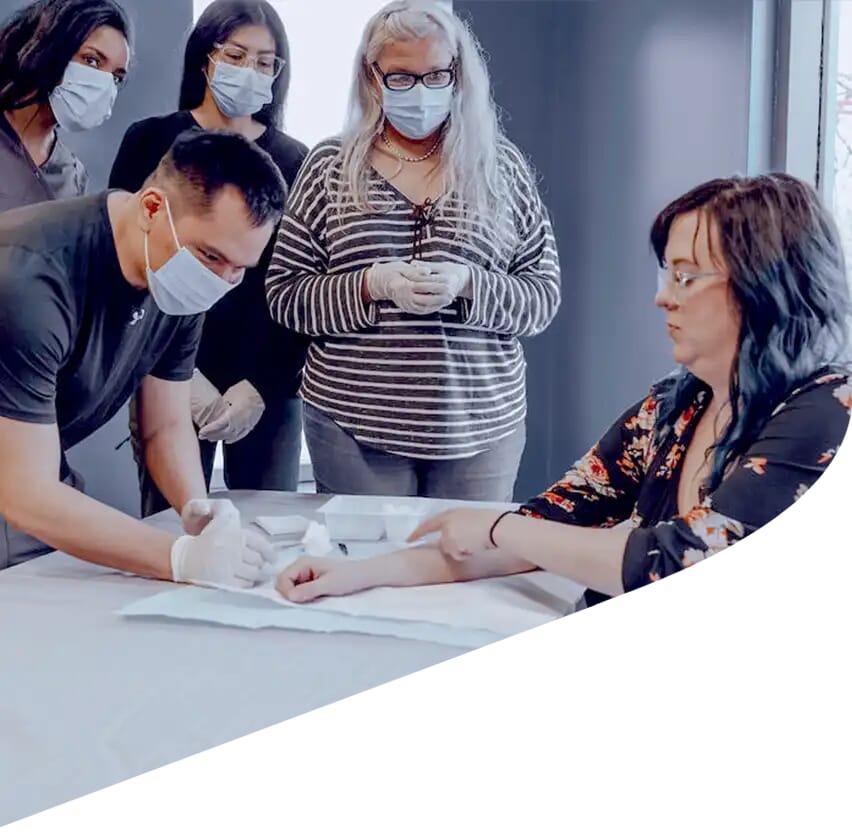We are Indigenous and allies, we love what we do. Respectfully working for more than 20 years alongside communities every step of the way to co-develop / co-design initiatives, education, resources and tools. Our team works to share knowledge and build innovative health and wellbeing solutions that are nation-based, community-driven and culturally safe. Our approaches result in improved access, performance and experiences.
We are proud of SE Health’s long-standing commitment to working in collaboration with First Nations, Inuit and Métis communities across Canada, which honours, respects and acts upon the work of the Truth and Reconciliation Commission.
For over 20 years, SE Health has recognized the importance of reconciliation and culturally safe care, demonstrating this commitment through our investment in a dedicated First Nations, Inuit and Métis Program. Through collaboration and a deep understanding of the Indigenous determinants of health, the program works to understand and solve complex health care issues, improve access and address barriers to care. This is done through enhancing and building upon the strengths of First Nations, Inuit and Métis communities across Canada.

The program provides remote access at no cost to on-line professional development education and support to more than 7000 health care providers in over 700 First Nations, Inuit and Métis communities and organizations across Canada. In addition, the program is supporting the need for certified learning by delivering continuing education and vocational training programs in collaboration with SE Career College of Health, a regulated not for profit vocational college. The program has also undertaken numerous national and regional projects to co-develop health service supports and solutions in collaboration with communities and community-based health staff. Some examples include:
© 2024 Saint Elizabeth Health Care Accessibility Information | Privacy Policy